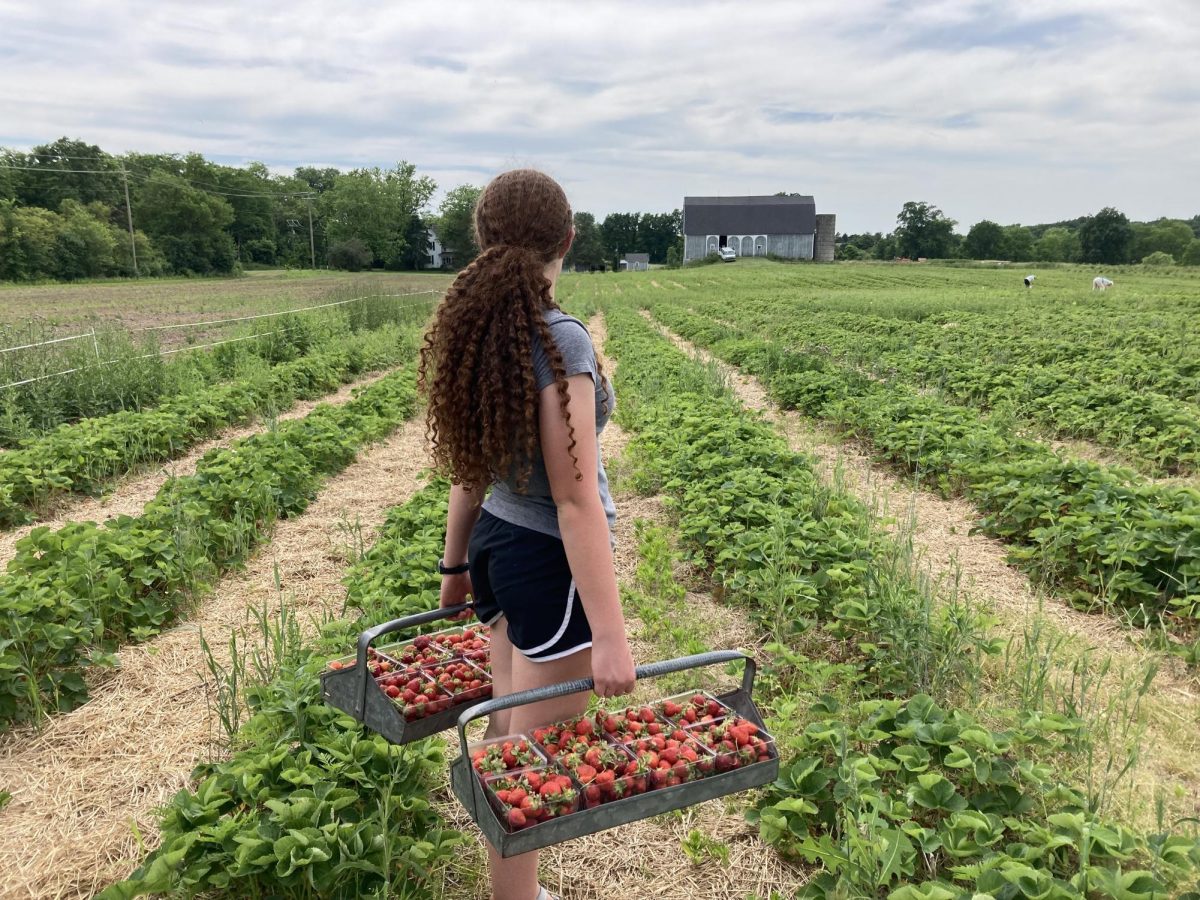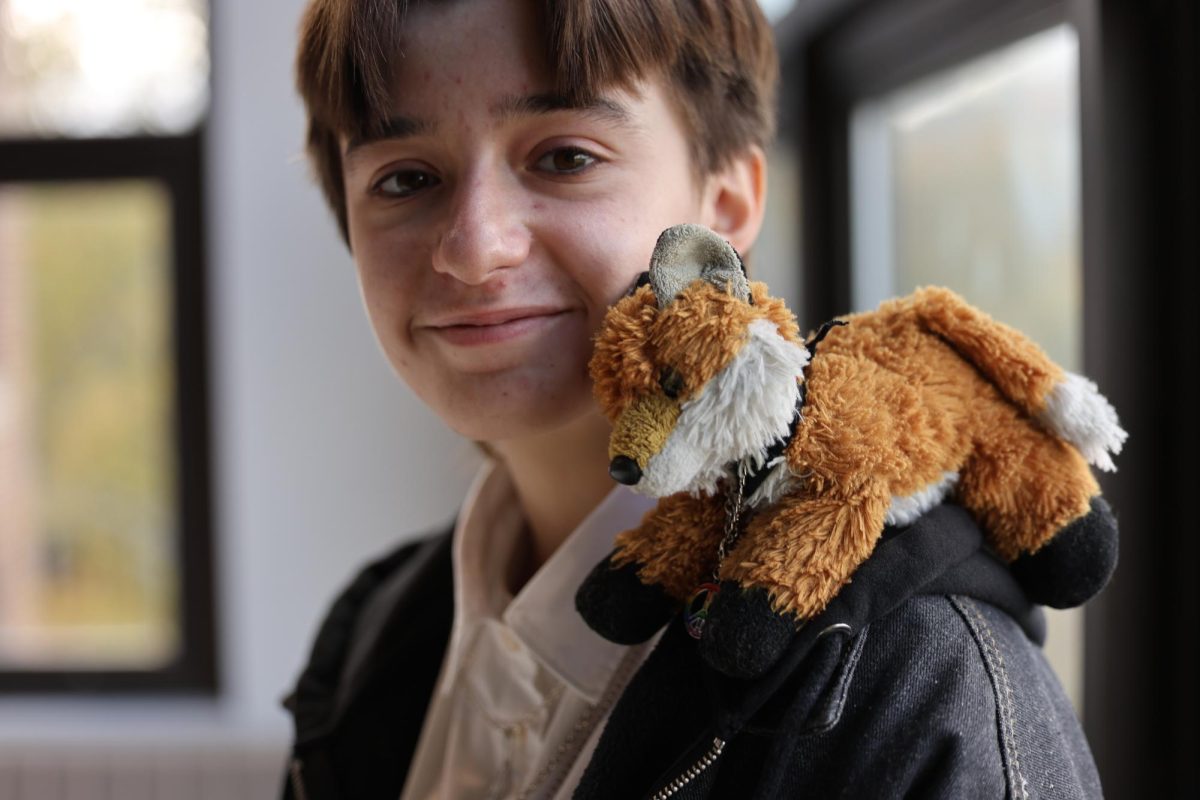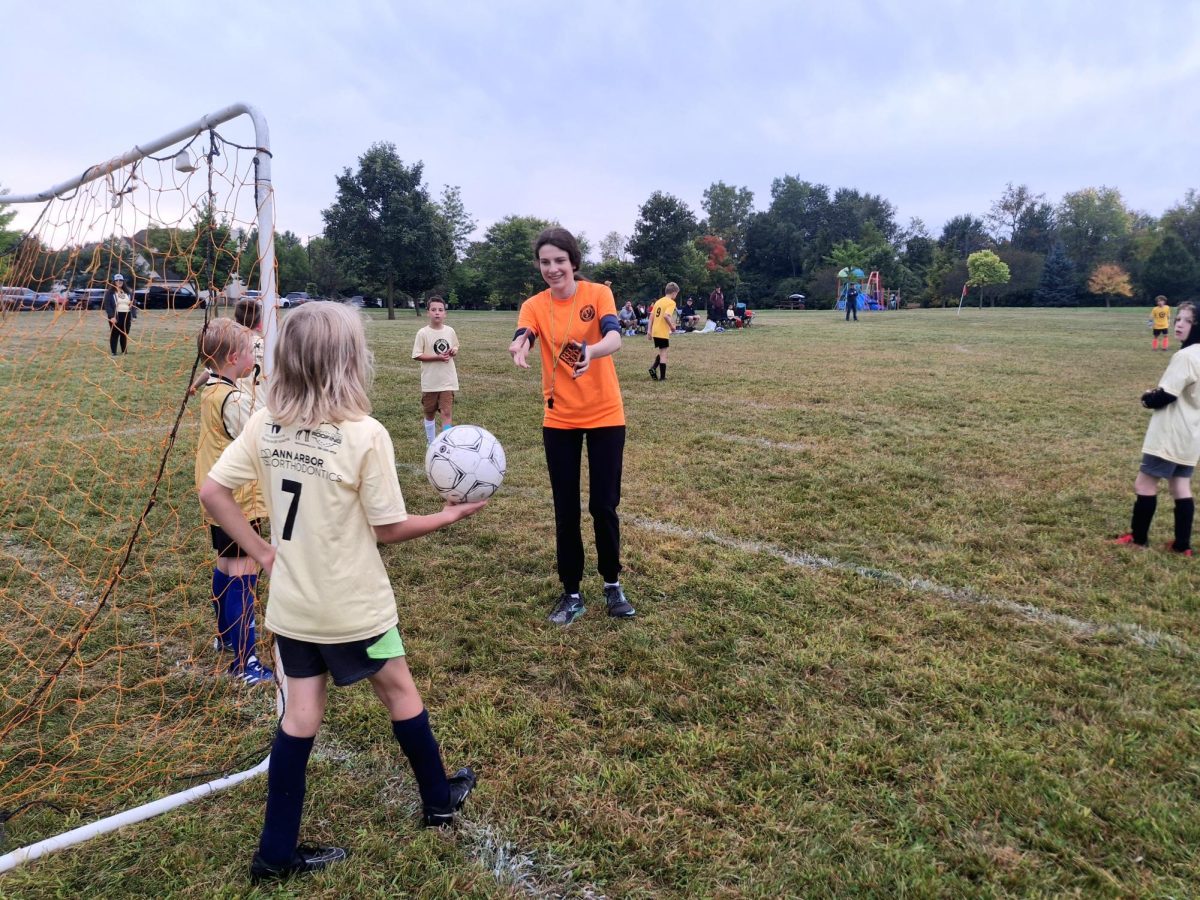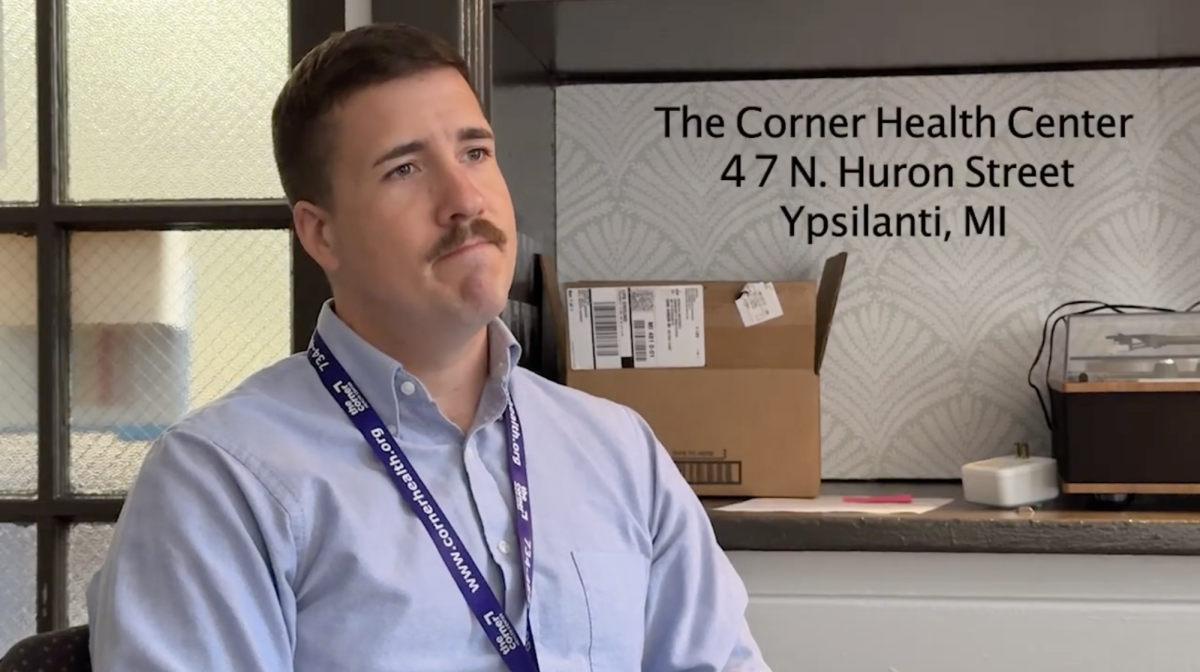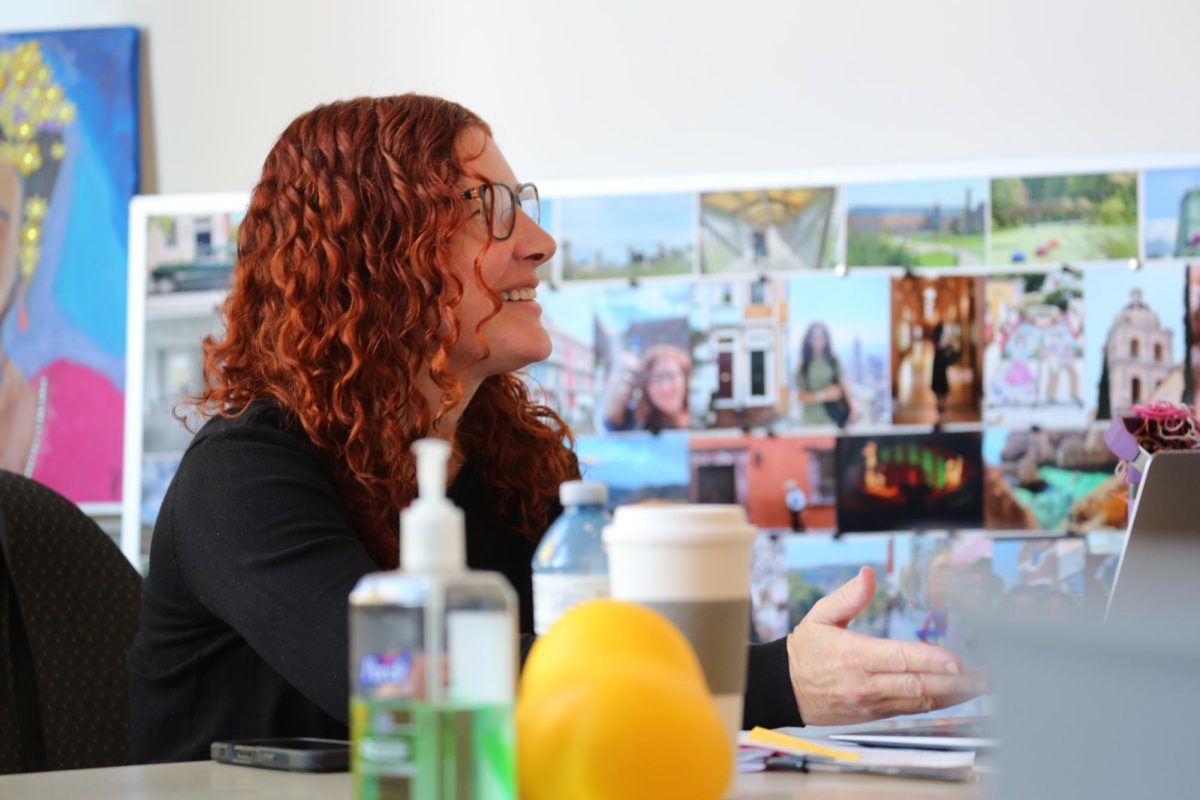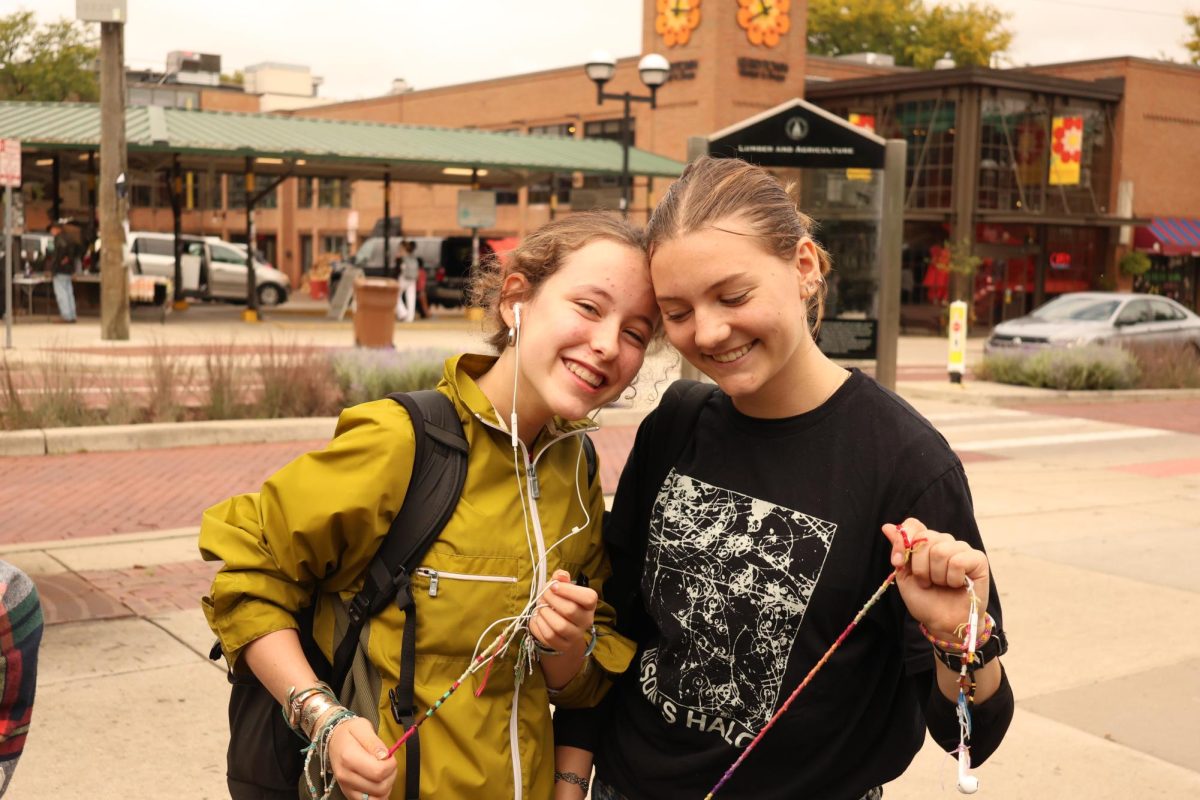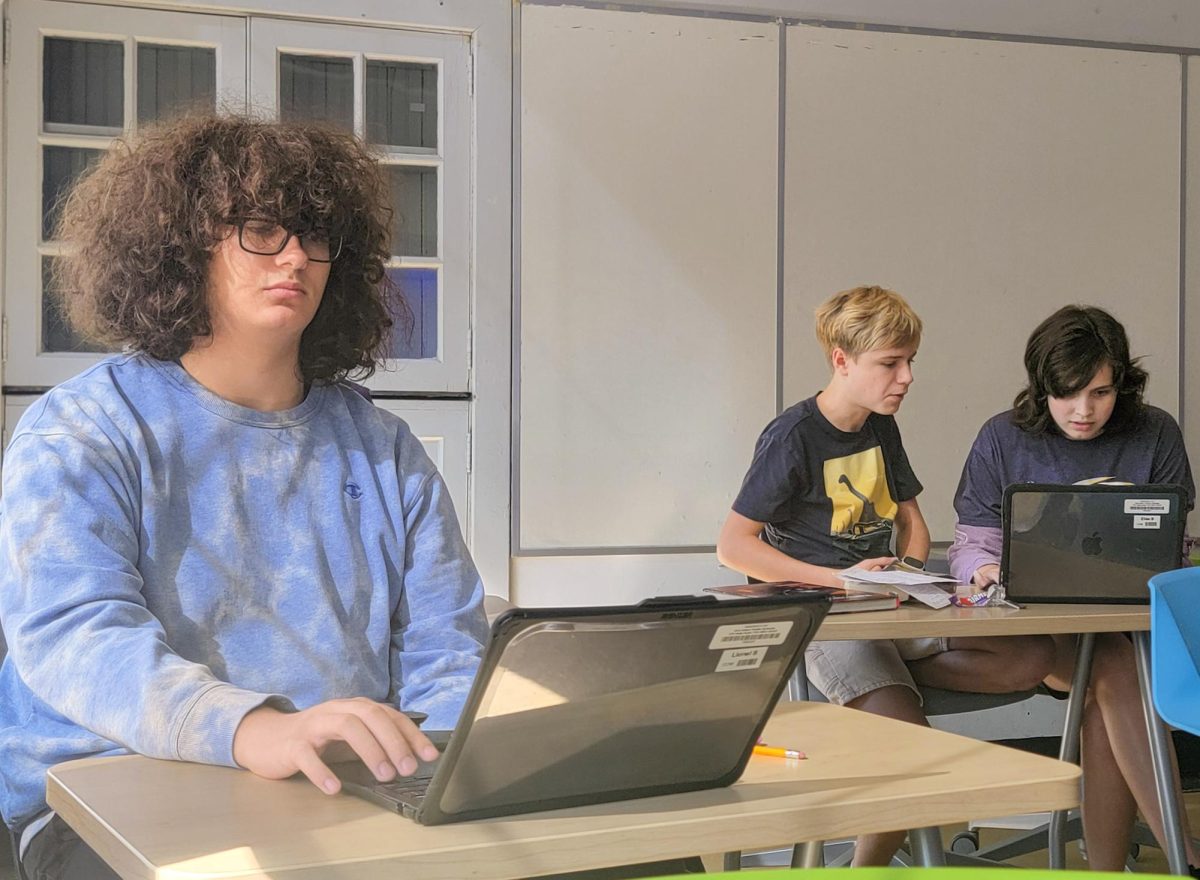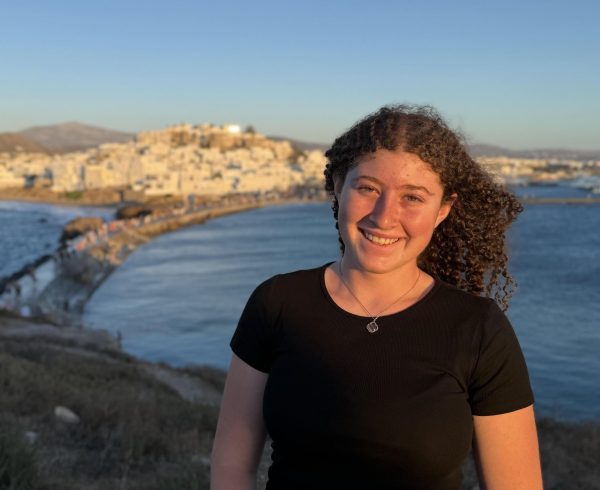The sound of laughter fills the air as the bell in the barn rings intermittently, strawberry-faced kids taking turns pulling the rope that swings the bell back and forth. Their parents chat and peruse the tables of fresh farm vegetables while holding buckets full of juicy, ripe strawberries. Their joy is one of Deb Lentz’s favorite things about HoneyBee U-Pick.
Lentz and her husband, Richard Andres, own a farm in Chelsea, Michigan, called Tantré Farm. Tantré provides fresh food to members of their “Community Share Agriculture” program (CSA). They also sell their food at the Kerrytown Farmers’ Market and local grocery stores, including Argus and the People’s Food Co-Op. However, their main farm is in Chelsea, too far away to be a regular stop for most people from Ann Arbor.
So Andres and Lentz set out to find farmland for U-Pick closer to Ann Arbor, where more people would be able to enjoy it. The land they settled on, located on the corners of Zeeb and Scio Church Roads, just fifteen minutes out of downtown Ann Arbor, was perfect.

Back in its heyday, a successful dairy farm was run off the land and passed down through six generations of the Aprill family. Based on the size of the cow barn that still sits on the west side of the property, Aprill Farm was one of the largest dairy farms in the area at the time. After dairy farming became more commercialized, the family shut down the milking operation and rented the land out to conventional soybean and corn farmers.
Scio Township, where HoneyBee is located, originally bought the land from the Aprill family because they were interested in land preservation. The township intended to sell it to a farmer who promised to maintain the land, and by buying the 160-acre property, they managed to save it from the likely fate of being subdivided and developed.
“The township owned some land they were interested in preserving,” Lentz said. “They were looking for the right farmer to buy it and we were looking for a place closer to Ann Arbor, so that led to this purchase.”
By the time the township had purchased it from the Aprill family, the land had been fallow for many years. Because of the extended dormancy and the monocrops of corn and soy, Andres knew that the soil was going to need some work to be healthy again.
Andres has always valued regenerative agriculture and the planting of perennials to preserve and regenerate soil. Perennials create a bigger root structure in the ground than annuals, adding more nutrients to the soil and often being better for the environment. Andres knew that, to bring this land back, he was going to need to focus on regenerative agriculture. He and Lentz decided to start with strawberries — a perennial that Andres knew well. It was the now sixty-two-year-old farmer’s first cash crop: in high school, Andres grew strawberries on a friend’s property and sold them by the side of the road. He has grown them ever since.
So they focused on the strawberries in their first year, maintaining them to keep the weeds out and plucking them to ensure their production for future years. In the next few years, they added raspberry and blueberry plants as well as nut trees, such as hazelnut and chestnut. By 2022, the strawberry plants were ready for the launch of their first vision for the land: a U-Pick patch.
“Providing fruit for the community was something [Richard] had done a long time ago,” Lentz said. “He loves strawberries. He wanted U-Pick. He wants people to be in touch with the earth.”

Although it started slowly, word quickly spread about the fresh, no-spray berries. A timber frame barn was built on the site, and Lentz and Andres began offering HoneyBee as a pickup location for their CSA, stocking a vegetable stand, and hosting events, including an annual Nut Festival each fall. Then, not only was Honeybee a U-Pick strawberry patch, but also a place for people to pick up food grown on the Chelsea farm and connect with others from May through November.
Sameer Dohadwala became a Tantré CSA member in 2024 and picked up his produce box throughout the summer every Saturday at HoneyBee.
“[HoneyBee] was a really fun part of my routine,” Dohadwala said. “Last summer, my son was about six months old. I would drive over, and I would pick up the farm share, and I would chat with whoever was there. I would look over all the fruits and vegetables and then I’d head home, and we would wash and dry the vegetables and put them away. It was a nice morning routine for us that we got in the swing of every Saturday.”
Many CSA members who came to pick up their share boxes at HoneyBee would stop to grab a pint of berries during strawberry season, late May through late June. Soon, they started bringing their friends who shared the news throughout the Ann Arbor community. As Lentz and Andres had hoped, HoneyBee became a routine in people’s week and a staple in people’s summer.
During the summer of 2024, hundreds of people showed up each day in peak strawberry season, lining up inside the barn with their fresh berries. It got so busy that Lentz needed to hire extra hands to help out at the patch.
Addie McCreadie, a CHS sophomore, was one of the people who helped out. She got to see the working farm up close and experience it all from behind the scenes.
“You get to talk to the customers and ask how their day is going, and, if they picked a bunch of strawberries, you can ask what they’re planning to do with them,” McCreadie said. “It was really fun to see what the community had built.”
Eva Rutyna, another CHS sophomore who worked at HoneyBee during the 2024 strawberry season, thought it was a great experience to be able to be out there with everyone.
“People should absolutely go and support HoneyBee, if they either want to work there or if they want to go pick strawberries,” Rutyna said. “It supports a local business and brings people closer to their food. Plus, it’s just so fun and so beautiful out there. During a morning shift, we opened up the barn and it was so pretty. The sun was rising and the sky was so blue. ”
HoneyBee saw record-breaking numbers last summer, with so many people stopping by saying that they had heard of it from a neighbor and had to check it out themselves. This was how Dohadwala found out about HoneyBee.
“My wife heard about picking strawberries in the spring,” Dohadwala said. “My sister took her kids there and picked a bunch of strawberries, and she gave us a batch, and they were amazing. And so my wife took some of her friends there, and that’s how we got introduced.”
Another one of the strawberry pickers, Amber Kessler, came with her husband and six-year-old son.
“I love that there’s no pesticides that are sprayed on the berries,” Kessler said. “That’s a big thing for me. The berries are delicious and the picking was fairly easy and kid friendly. I love that it’s U pick so I get to eat and pick as much as I want.”
The range of engagement that Lentz and Andres got from people like Kessler, Rutyna, McCreadie and Dohadwala was exactly what they had hoped for. Lentz sees the importance of people knowing where their food comes from and being able to pick it themselves, literally being in touch with the soil and the food.
“Food is a connection to all people, all across the planet,” Lentz said. “We all need to eat. It is that idea that when we know where our food comes from, and we have a relationship with food, which many people do not, that we’re more likely to care for it. And so then being more in touch and having a relationship with the land.”
As the 2025 strawberry season grows closer, Lentz thinks back to why any of it matters to her in the first place, why she and Andres work so hard to maintain their farm for people.
“I really love the sound of laughter, and to hear kids laughing and picking strawberries,” Lentz said. “They come in with their faces covered in strawberries, and it’s just joy.”
Lentz sees generations of families come to the patch together, grandparents sharing with their grandkids the summer pastime that they had with their families when they were little. The whole group connects in the shared joy of finding the next juicy red strawberry.
“It’s so nice to see families happy and just see that it matters,” Lentz said. “We need joy in our lives. And you know, this is a simple joy, and it’s nice to know that this gives somebody joy.”



